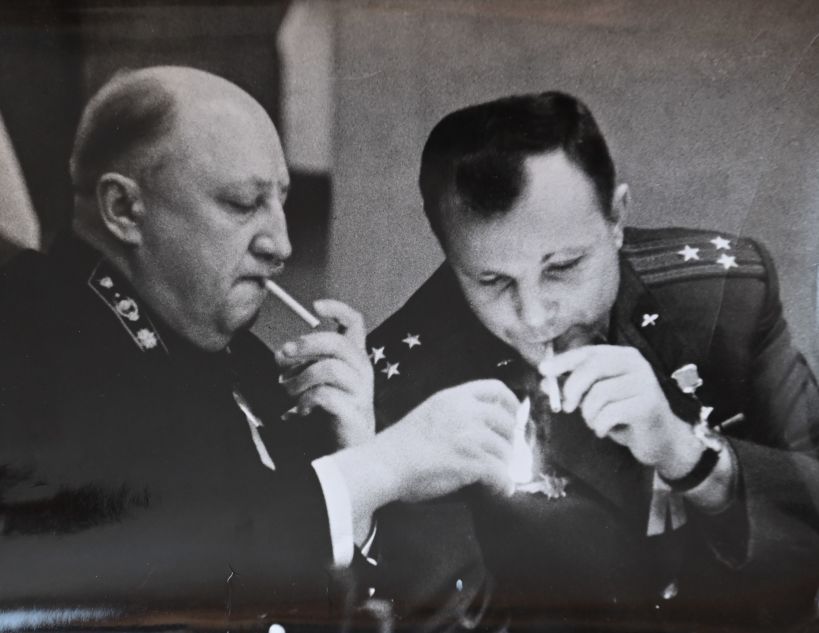The USSR’s most famous and honoured prosecutor, who filled that important role from the time of Stalin to almost the end of the Brezhnev era (Rudenko died in 1981, Brezhnev in 1982), was in charge of the Soviet delegation at the Nuremberg trials, when he was aged only 38.
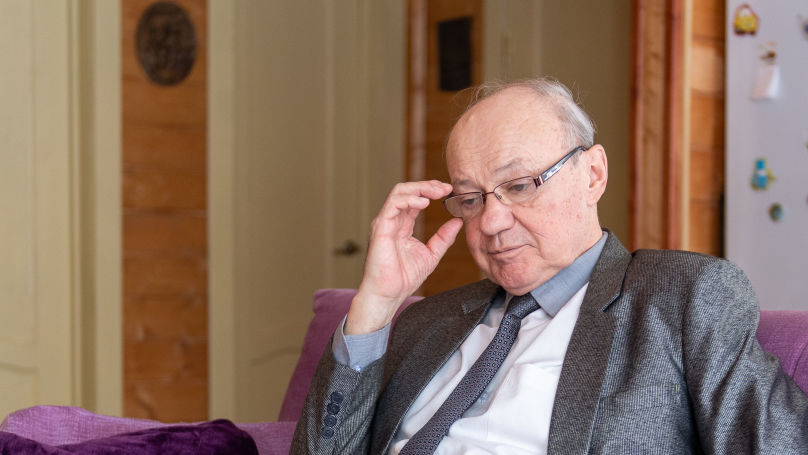
His colleague, the US chief prosecutor Robert Jackson, has become a national hero in America. But in Russia - let alone the rest of the world - Rudenko’s role in convicting Nazis has been shamefully overlooked. And this is despite the fact that he is one of the few advocates to whom the world owes its present understanding of law, fair trial and humanity. Fortunately, his son, Sergei Rudenko, a diplomat, has been able to redress the balance and tell the “Nuremberg: Casus Pacis” project about his outstanding father.
– Sergei Romanovich, when did you know that your father was the chief prosecutor at the Nuremberg trials? To what extent was this topic discussed in your family?
– I remember that the Great Patriotic War was discussed in my early childhood. Naturally, I knew that after the defeat of Germany, the Nuremberg trials took place, at which my father was chief prosecutor. Subsequently, my father often recounted the trials and talked a lot about it – without, of course, breaching any confidentiality restrictions, as a lot of material was classified at the time. But by the time I was of school age, I’d formed a good idea of the process.
The tribunal was very difficult, unprecedented, and unique. In his opening statement on 8 February 1946, my father noted that for the first time in history, criminals who had seized an entire state and made the state an instrument of their monstrous crimes were appearing before a court of law. It was also the first time that, not only the defendants, but also the criminal institutions and organisations they created – the SS, SD, Gestapo, the main purpose of which was the mass extermination of humans - were being tried. The situation was complicated by the fact that the anti-Hitler coalition was represented by states with different legal and political systems. It was crucial to find consensus and come to a common decision, which was achieved.
– These are, one might say, protocol matters. But did your father share “life stories”?
– He remembered that in that situation it was important to find common ground with his colleagues. My father developed very good - I would even say, warm - relations with Robert Jackson, the chief prosecutor for the US. They helped each other with unusual issues which arose during the trials. One such issue was when a Soviet plane landed without warning in the American occupation zone and the crew was arrested. My father asked Jackson to help with getting the crew released, and Jackson complied. The second story my father told was more anecdotal and involved American soldiers who saw a Soviet truck in cold weather which was full, as it turned out, of Nazi Germany documents that they decided to burn to keep warm. A great scandal could have erupted, but Jackson spoke with my father, and he said these documents were of no value, and so the incident could be considered settled. Dad and Jackson understood each other well.
– What language did they communicate in?
– My father did not speak foreign languages, although I think he could explain himself a little in English. But mostly they spoke through an interpreter.
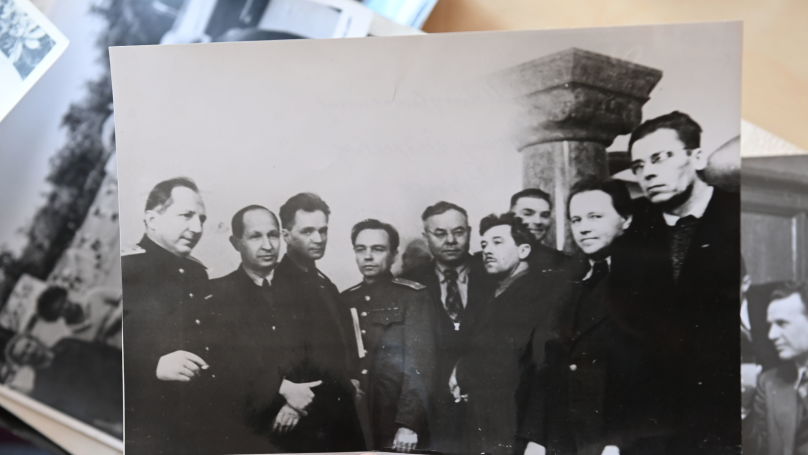
– Roman Andreevich was the youngest prosecutor. How did he come to be chosen?
– He never talked about it but, in my opinion, there were two reasons. First, my father was the prosecutor in Ukraine at the time, which was the republic - along with Belarus - to have suffered the worst from the fascist invaders. Second, in 1945, there had been trials of collaborators, and one of the trials concerned representatives of the Polish Home Army which took place in the Pillar Hall of the House of Unions. It was attended by diplomats and foreign correspondents and widely covered by the press. My father was an assistant to the prosecutor Alexander Afanasyev, and spoke a lot... actively participated – in short, he distinguished himself. When it was time to choose the chief prosecutor for the Nuremberg trials, Stalin opted for my father, although he was only 38 at the time.
– One of the highlights of the trials was the interrogation of Field Marshal Friedrich Paulus. Was it your father's idea to get him to Nuremberg secretly, or was it decided "at the top"?
– I know quite a lot about it: from the very beginning of the Second World War, Nazi propaganda promoted the idea that Germany had never planned to attack the Soviet Union, and that the attack was a preventive measure since the Soviet Union concentrated its troops on the western border. The defence at the trial put forward this opinion and did not accept Paulus's testimony given in Moscow. They therefore demanded his personal presence. In the event, it was decided to get Paulus to Nuremberg secretly since he was involved in the development of the attack on the USSR as far back as autumn 1940.
When my father interrogated Paulus in Moscow, he came to the conclusion that he sincerely repented; my father was one of the first to think of bringing him to Nuremberg. This idea was reported to Stalin and he approved it, accompanied by one phrase: "Into your custody, Comrade Rudenko".
– That must have been a terrifying responsibility...
– Yes, if he had failed, his head wouldn’t have stayed on his shoulders much longer, as they say. Paulus was brought to Nuremberg, and the operation was organised so well that none of the western special services learnt about it. And when the Nazi defence demanded Paulus's personal appearance at the trial once again, the Soviet prosecutor said that delivering the witness to the court would take no more than half an hour, since he was staying where the Soviet delegation was lodged. The news was like a a bombshell: when Paulus appeared in the courtroom, the defendants were shocked: many in Germany believed he was dead.
Of course, there was a risk for my father. He had calculated every possibility but giving evidence in Moscow and in Nuremberg are two very different things. And when Paulus was asked whether he recognised the testimony given in Moscow, he confirmed it, stressing that he personally participated in developing the plan to attack the Soviet Union - codenamed "Barbarossa" - and that it was ready by the autumn of 1940, long before the start of the Great Patriotic War.
– Was your father in the habit of making risky decisions?
– Of course, before making a decision he would analyse everything carefully. But I can give you an example when my father, by this time Procurator-General, took a rather serious risk: in the early Sixties the Rokotov-Faibishenko case erupted. There was a cartel of eight people to buy foreign currencies from visitors to Russia and then sell it for a profit, which was forbidden by Leninist ideology. Three, including Rokotov and Faibishenko, were sentenced to 15 years in prison, four to 8 years’ in prison and one to 6 years. Although 8 years’ imprisonment was the maximum penalty at the time, Khrushchev was not satisfied with the punishments. The Supreme Council revised the law so that it stated that such crimes were punishable by death. But laws do not apply retroactively, so my father spoke out against the death penalty, realising that it could have serious consequences. Khrushchev asked him: "Whose side are you on - mine or of these currency dealers?" My father replied: "I am defending socialist law". “You are free to go,” Khrushchev said. The defendants were tried for the third time and executed by firing squad.
After that, my father had a conversation with my sister (I was young at that time). He wanted her to know the real situation in case anything happened and he was removed from office. After two or three months of tense waiting, the session of the Supreme Soviet of the USSR took place, when Khrushchev asked my father to stand up. He declared publicly: "Here is an example when a person defends his position.” Of course, what my father did was risky but he remained true to his beliefs.
– They say that Khrushchev even said to Roman Andreevich: "Do not think that you are appointed for life!" But three years later, Khrushchev was removed from office himself, and your father became the only Procurator-General of the USSR who worked in this post until his death.
– Yes, he worked for 28 years – he died in 1981.
– Nobody in the Soviet Union has been Procurator-General for so long. In your opinion, was such a brilliant career the result of your father's efforts or was it just luck?
– It's hard for me to judge whether there was some kind of luck in his youth. But I can say for sure: if other important posts in the Soviet Union have been acquired through nepotism and who you know, that was absolutely not the case with my father. He started as a labourer in a sugar factory and achieved everything himself. Of course, he had a deep knowledge of the law, and he followed it strictly. Nuremberg played a very important role - after that Stalin encouraged my father and he became more respected in society. In 1953, appointing my father Procurator-General was one of Khrushchev’s first decisions. He was in charge of the case of Beria, and from then on he held the post permanently.
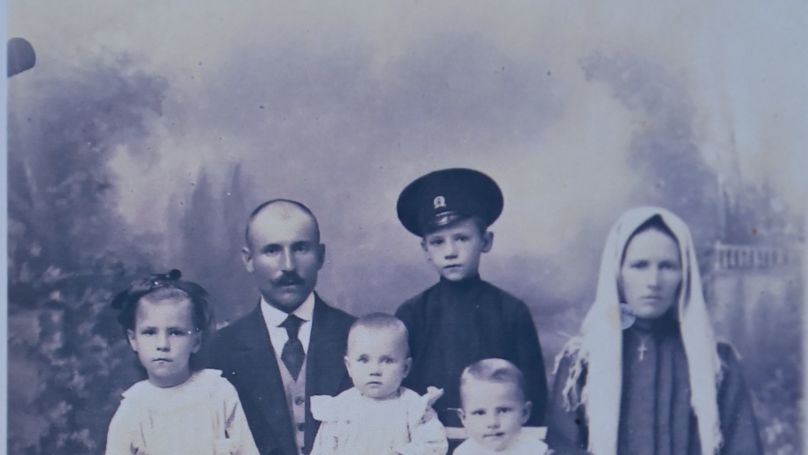
– I have to touch upon a difficult topic. Under Khrushchev, your father, on his own initiative, was involved in rehabilitating victims of political repression and achieving a retrial for many cases. The conclusions of his commission formed the basis for Khrushchev's report at the 20th Party Congress - on Stalin’s cult of personality.
– Yes, it's true.
– Your father made great efforts to change the direction of Soviet jurisprudence, to make it more humane. On the other hand, in the Thirties, Roman Andreevich was a member of the “special troikas” - extrajudicial investigative bodies that often imposed the death penalty and were later recognised as illegal and unjust. What do you think about these two points?
– Of course, there is no definite answer. In the Thirties, the state followed a tough, often illegal and unjustified path, and all lower bodies were forced to adapt to this system. If someone was declared guilty, there was no mechanism in place to launch an inquiry. They were difficult times. It's hard to imagine what would have happened if, when a prosecutor was told: "This one is to be shot," he started to object and say: "No, let's figure it out". One can only guess what the result would have been. My father and I did not discuss it.
I do not know what exactly happened in the "troikas" with my father’s involvement, but I believe that illegal decisions could occur there. This is our history, we must not forget about it. But I know for sure that my father sincerely approached the issues of rehabilitation, did a lot to rehabilitate the unjustly convicted and considered it to be the most important part of his job.
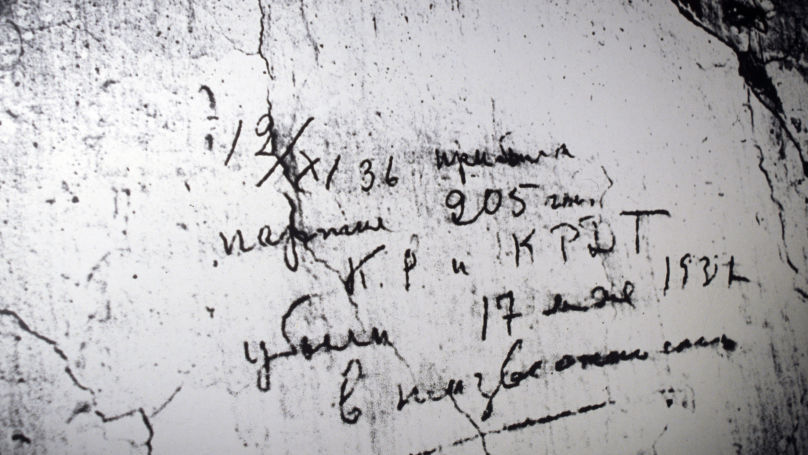
– What kind of person was your father at home? In Alexander Zvyagintsev’s biography of Roman Andreevich, he tells the story of when your mother punished you and your father told her never to do that again.
– Yes, I told Zvyagintsev that story myself. I was about five or six when I chased a family member with a broom, because I was angry for something and my mother spanked me. But in the evening I overheard her conversation with my father. He said that, of course, a punishment was necessary, but he demanded that it be the last time she use physical force. And it really never happened again. Father was strict but fair. He taught us to be decent and honest and that's what I try to teach my own children. And another very important point: he told me - never make promises, don’t give your word until you`re sure that you are able to do this, but if you have already given your word, then do it. His word was very valuable to him.
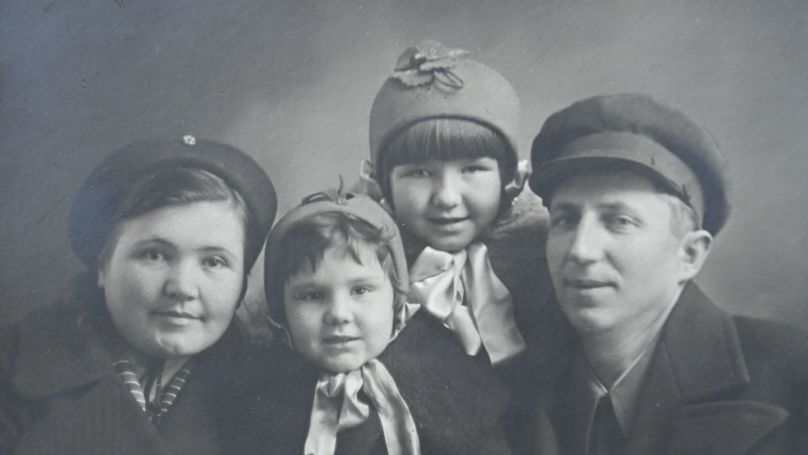
– There were probably a lot of people who asked for his help, complaining about injustice. Did your father share such stories?
– No, he didn`t, but I know for sure that he tried to help in such cases. But he refused to help if it wasn’t according to the rule of law. Once I was leaving our summer cottage by bicycle (I was 12), and a man came up to me, saying: "I have a package for your father, please give it to him." I unwittingly gave it to my father and he told his assistants to catch up with the man and return the package. Then he explained to me that such things should not be accepted: if a person wants justice, he must follow the legal path, and not pass something secretly without introducing himself.
When I was a student, my father worked very hard, and we tried to take his mind off work at home. We had a big family: father and mother lived together for almost 50 years and I have two sisters who are both married with children. We gathered at my father's dacha, especially on weekends, for traditional family breakfasts, dinners, playing football - my father loved it very much. We told jokes, played dominoes. He had a rest with us, and we tried not to disturb him by talking about his job. The atmosphere in our family was very warm and friendly.
– Was it forbidden to talk about work at home?
– No, not at all. Quite the contrary, he enjoyed talking about it, answered all kinds of questions, and we talked a lot about politics. There were no taboo topics at all. But there was an unspoken understanding that my father was very busy, so it was better to talk about music, art and so on.
– What did your father consider to be the most important moments in his career?
– He did not tell me specifically, but I think it was the Nuremberg trials, Beria’s trial, the rehabilitation of the repressed, and the Powers trial in 1960 when an American pilot (Gary Powers) was shot down during a spy flight over Sverdlovsk.
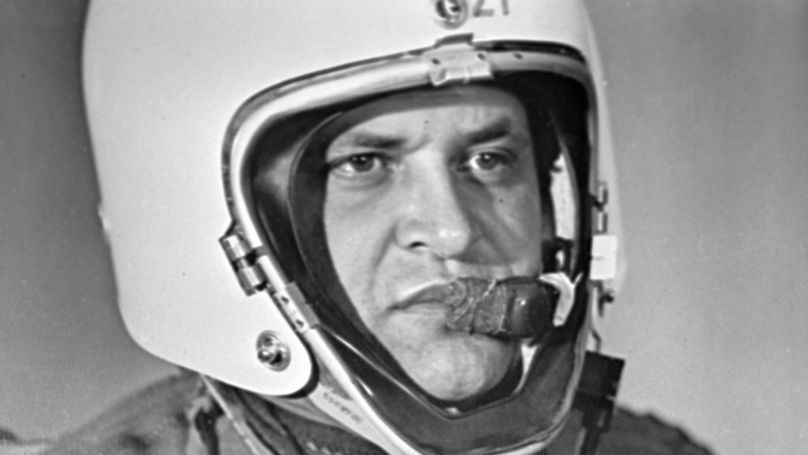
– To return to the Nuremberg trials: was your father totally satisfied with the work of the Soviet team? Participants of the trial noted that none from the Soviet delegation received government awards, although Procurator-General Gorshenin wrote a recommendation to Stalin.
– My father highly appreciated the work of the delegation. He said that the team worked smoothly, like a single entity, except perhaps for one case. There was an NKVD officer Likhachev who was a negative element in the work of the delegation, but later he was called away and never returned to Nuremberg.
As for the completion of the trial, my father reported to Stalin on its outcome, and in particular noted that a common judgment to condemn fascism and criminal organisations was more important than verdicts against specific defendants. As you know, in his closing speech, my father demanded the death penalty for all defendants. The same was requested by the rest of the prosecutors, except Jackson, who did not name specific measures. In the end, the International Military Tribunal at Nuremberg decided that out of 22 defendants 12 were to be executed, seven of them, to be handed various terms of imprisonment, and three to be completely acquitted. Of course, one would wish that everything had happened as the Soviet side had requested, but more importantly, a clear compromise had been found and the court had reached a unified position.
Stalin spoke very highly of my father and was generally pleased with the outcome of the Nuremberg trials. As for the decorations, as far as I remember, my father received his first Order of Lenin in March 1945 for the restoration of socialist law and order in Ukraine. There are still bureaucratic rules which state that if a person has been awarded, he cannot get another award in peacetime within a short period of time. But this is my guess – I have no exact information.
– The Nuremberg trials were not just about working at the Court itself, but also about ordinary life: recreation, promenades, socialising. Did Roman Andreevich recall this informal side of the trials?
– I cannot say that I have heard many of his memories on this subject, but thanks to Alexander Grigorievich Zvyagintsev, I made a trip to Nuremberg in 2014 and visited the Soviet residence. There, members of the delegation met each other in the evening and people covering the process would come - my father developed a very good relationship with court sketcher Kukryniksy in particular. They could stop thinking about work, and as relations in the delegation were friendly, conversations were accompanied by recollections from their youth and anecdotes.
– If you were to participate in the Nuremberg trials, what would you like to see or maybe change?
– I've never really thought about it; the time machine hasn't been invented yet. But, of course, it would be very interesting to take part in the Nuremberg trials. Something to change? – No. It went on as it was supposed to be, and it was the outcome that mattered.
– As you pointed out, the Nuremberg trials were unlike anything which has ever happened before and laid the foundation for the world we live in. What are the main lessons of Nuremberg today?
– The judgements of the Nuremberg trials are still relevant, even though 75 years have passed. As you know, they formed the basis of many international legal instruments - iIn particular, the UN General Assembly is still paying attention to the decisions of the process; I can cite the latest resolution on combating glorification of Nazism, which was adopted on 16 December 2020. But there are forces in some countries that are trying to whitewash fascism, to revise the outcome of the Second World War, to say that “it is still unclear who attacked whom”. Such attempts must be resisted.
I must make a small disclaimer: in 2018, British Prime Minister Theresa May, referring to the poisoning of Sergei Skripal, a former Russian military intelligence colonel of the Main Intelligence Directorate of the General Staff, blamed Russia using an English expression “highly likely”. Later, this legally illiterate wording was used in other allegations against Russia. In the West, they might say now that it is highly likely that it was not Germany that attacked the Soviet Union, but the Soviet Union that attacked Germany. But it is enough to look at the judgments of the Nuremberg trials and the subsequent resolutions of the UN General Assembly, and everything becomes clear. Therefore, all attempts to cast doubt on the outcome of the Second World War, in my view, are doomed to fail. There will be squeals, but no more than that.
– What must be done to avoid any need for another Nuremberg trials?
– The Nuremberg trials as such are difficult to imagine today, because they would have to be preceded by large-scale aggression. In today's circumstances, ironically, there is such a thing as nuclear deterrence. Every statesman understands: no matter who starts the war, the entire world will be destroyed. So I can't another Nuremberg. If a world war were to happen, there would be no one left to organise it.

That is why we entered in 2010 into this major Strategic Arms Reduction Treaty with the United States. And when the Biden administration recently took office, they immediately went ahead and extended it unconditionally. Unfortunately, this positive moment is so far the only one in Russia-US relations under the present US president.
– There is now much talk in Russia about the outcome of the Nuremberg trials. At the same time, transcripts of the Tribunal in English, French and German had been published by the end of the Forties, whereas the full Russian text has yet to be published. Why is it that in a country that played a major role in the victory over Nazism and talks a great deal about it, so little is being done actually to preserve memory? It is still a big challenge to get access to the archives related to the Great Patriotic War.
– Today, almost everything is known about the Nuremberg trials, and not just on the basis of unfounded allegations. Why all the documents from the trials have not yet been published in Russia is hard for me to say, but I don’t think it’s politically driven. Perhaps it isn’t considered as significant as it should be. They say that 75 years have passed and everything is already clear, why publish it?
There is another question about the declassification of some documents - this is a complicated and lengthy bureaucratic process, but I don't see any attempts to hide anything, especially on the part of the state. The Nuremberg trials were our foreign policy victory, and that says it all.
By Daniil Sidorov, Natalia Zavyalova
